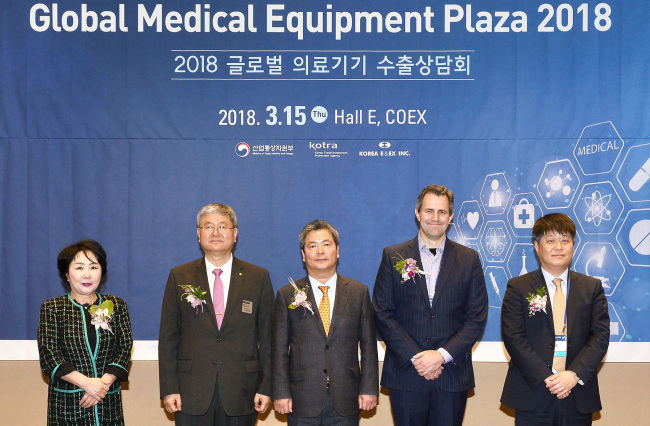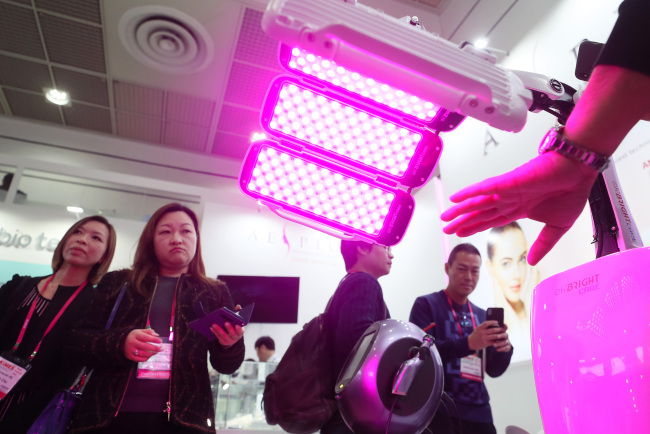Today, the global medical technology sector is at a crossroads. Despite a decline in health care spending and a sharp growth in the number of firms pursuing medtech, demand for products and services that promise the best patient outcomes and satisfaction is higher than ever.
In this age, developing a product alone cannot guarantee the success of a medtech company. Firms must instead focus on building, or integrating themselves into, an end-to-end solution that guarantees the best, most economic outcome for patients and doctors from start to finish, says an executive of global medical device manufacturer Medtronic.
“We need to stop thinking about products, but procedural solutions,” said Brett Knappe, vice president of business development and strategy at Medtronic USA’s spine division during his keynote speech at the Korea International Medical and Hospital Equipment Show in Seoul on Thursday.
“A procedural solution provides everything a physician needs to deliver a good patient outcome,” he said, citing the need to integrate all steps involved in the surgical process from diagnostics, imaging, pre-operation planning, surgical operations, implants, biologics usage and post-care monitoring.
 |
Brett Knappe (second from right), vice president of business development and strategy at Medtronic USA’s spine division poses alongside other local guests during an opening event at KIMES 2018 (Yonhap) |
A comprehensive solution of this kind cannot be built by a single company. It requires a partnership among multiple companies from different fields, such as firms specializing in big data analytics like IBM or smaller startups with a standout expertise in a particular diagnostics process.
For instance, artificial intelligence algorithms could be used to predict the likelihood of surgical complications such as a heart failure for a particular patient. And based on this information, a doctor could administer certain biologic medications in advance.
Given the collective nature of the approach, only companies with the ability to secure the right strategic partners will succeed in the future health care world. And it is a direction that Medtronic has embraced as well, according to Knappe.
“It’s a self-improving system with multiple stakeholders. If I’m a smaller company, I’d need to figure out how I could fit into the system,” said the Medtronic executive.
Procuring a strong basis of scientific and clinical evidence to support a product is also a major part of staying competitive. It’s not enough to launch an innovative product anymore. Firms must collect rigorous amounts of post-market data to prove each product’s claim, he said.
The Medtronic vice president’s remarks came on the sidelines of KIMES, Korea’s largest medical device and equipment trade show held annually at Coex in Seoul. It’s in its 34th edition this year.
 |
Visitors check out a skin regeneration device developed by Korean medical device maker Grand Aespio during KIMES 2018 (Yonhap) |
The show, which continues through Sunday, is featuring a total of 1,313 medical device manufacturers from Korea and 34 other countries including the US, China and Germany. More than 76,000 attendees from 80 countries and 3,500 foreign buyers are expected to attend.
From Korea, Samsung Electronics and Samsung Medison are showcasing their flagship diagnostic imaging medical devices, including advanced ultrasound systems for radiology RS85 and HS70A. Other participating local firms include X-ray device makers DK Medical Systems and Listem, among others.
Global medical device manufacturers including GE Healthcare and Philips have also set up booths. KIMES has organized a special hall showcasing the latest medical robots including surgical robots and physical rehabilitation robotic systems.
By Sohn Ji-young (
jys@heraldcorp.com)









